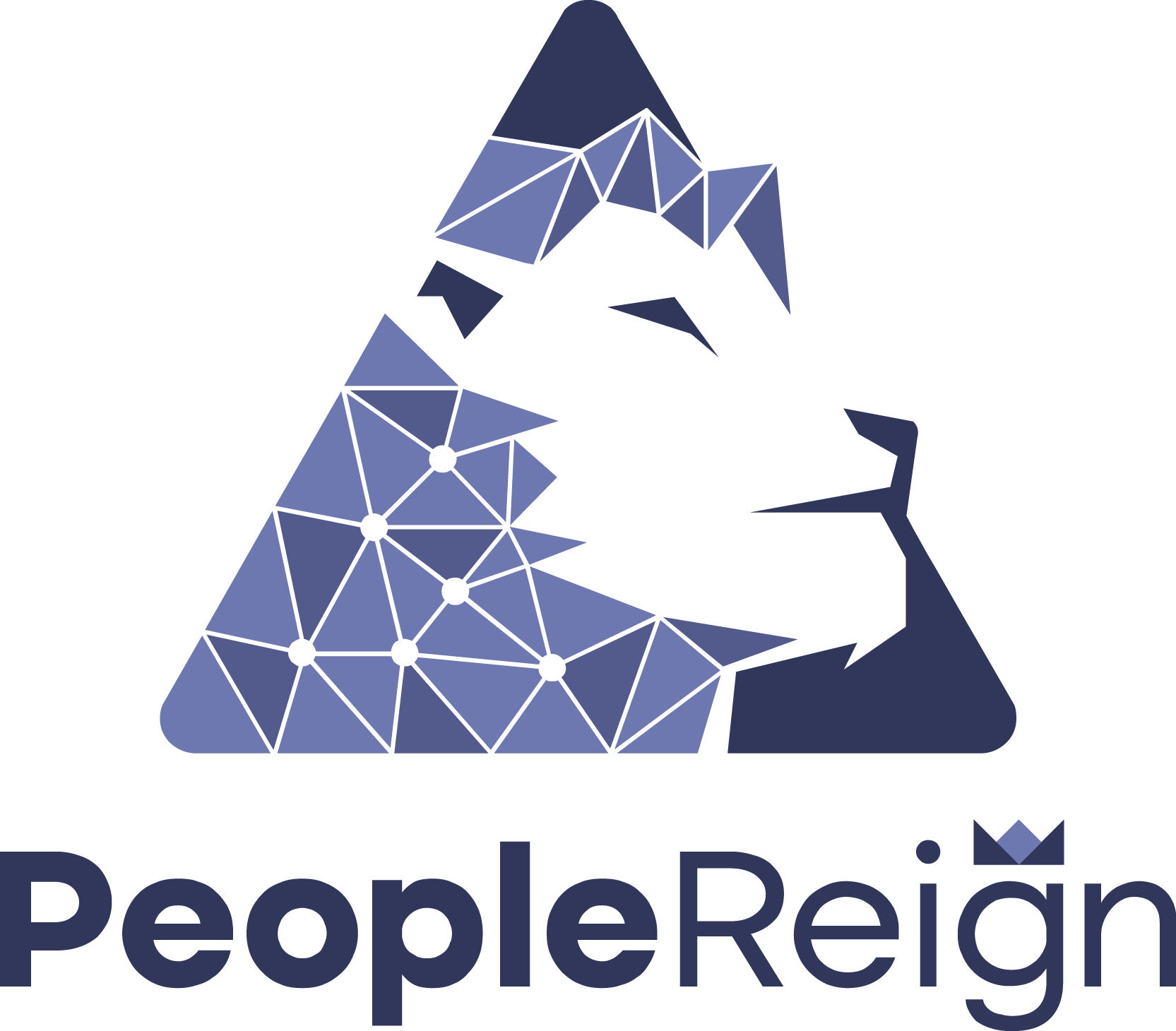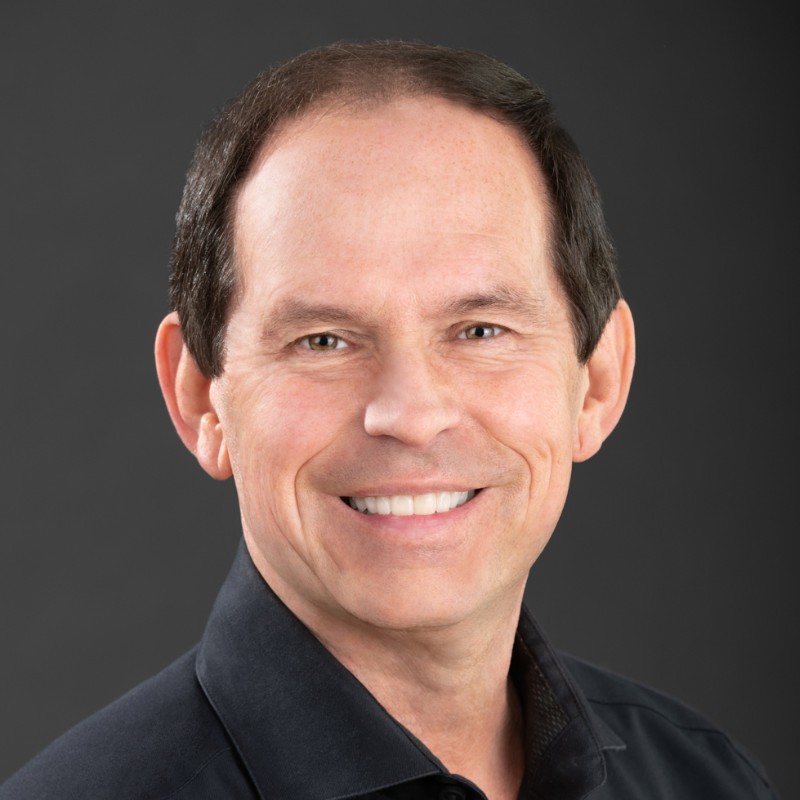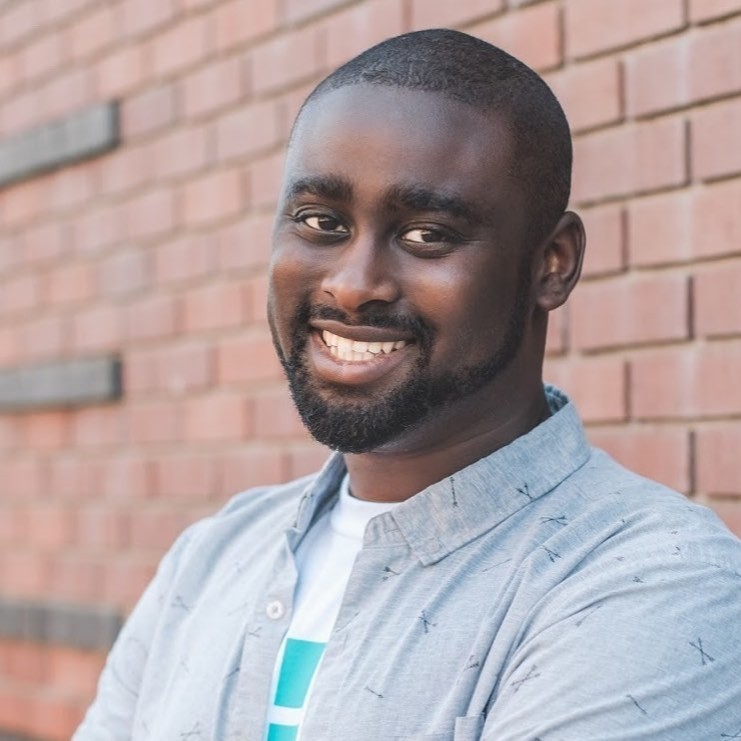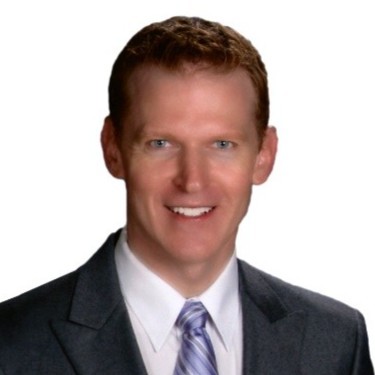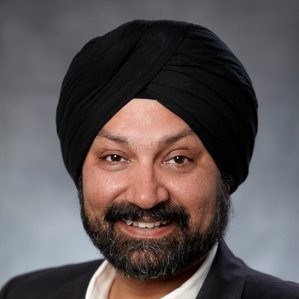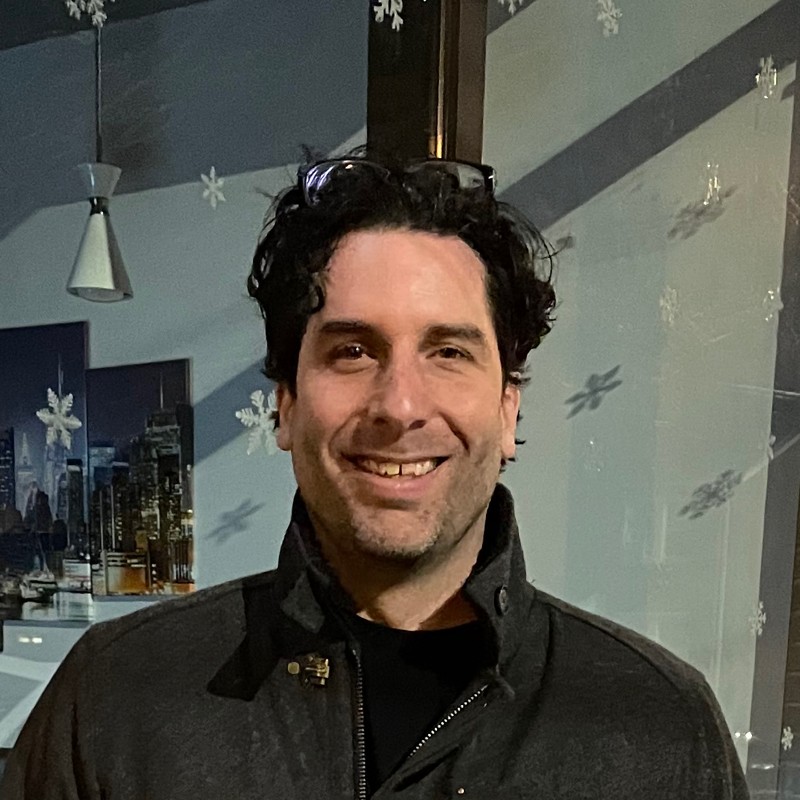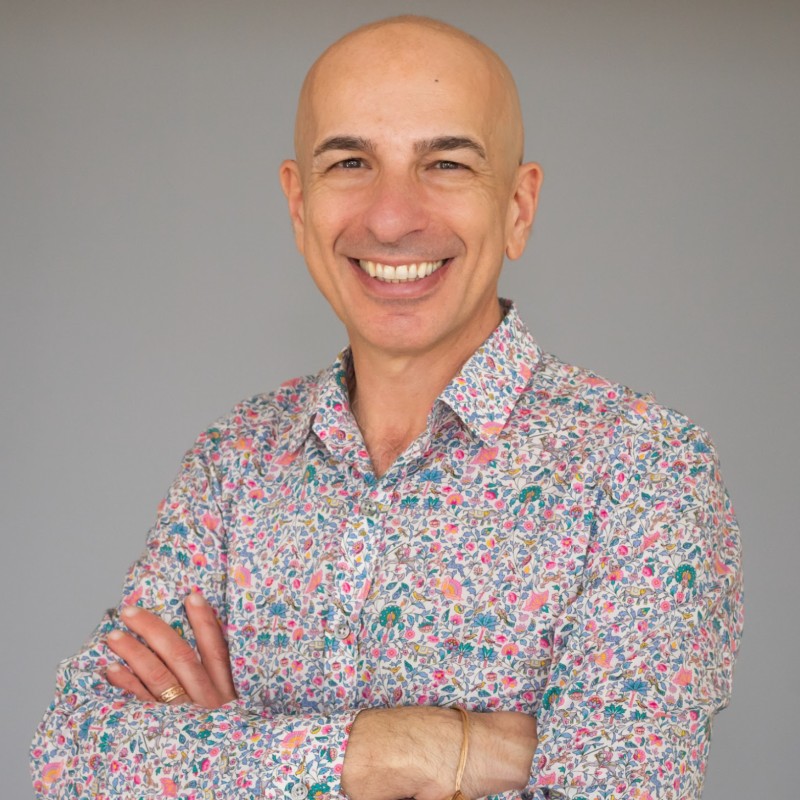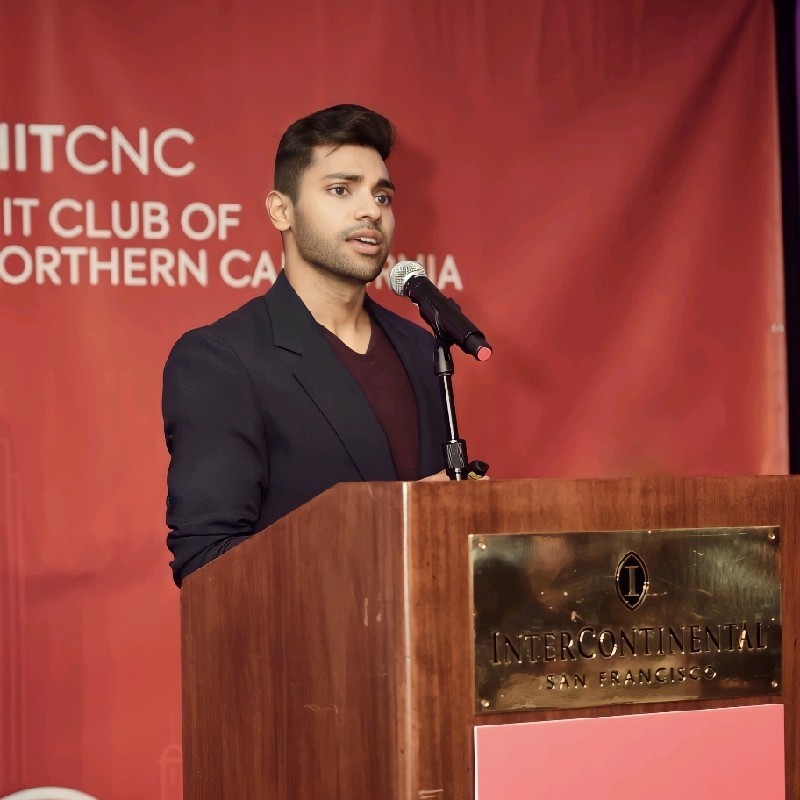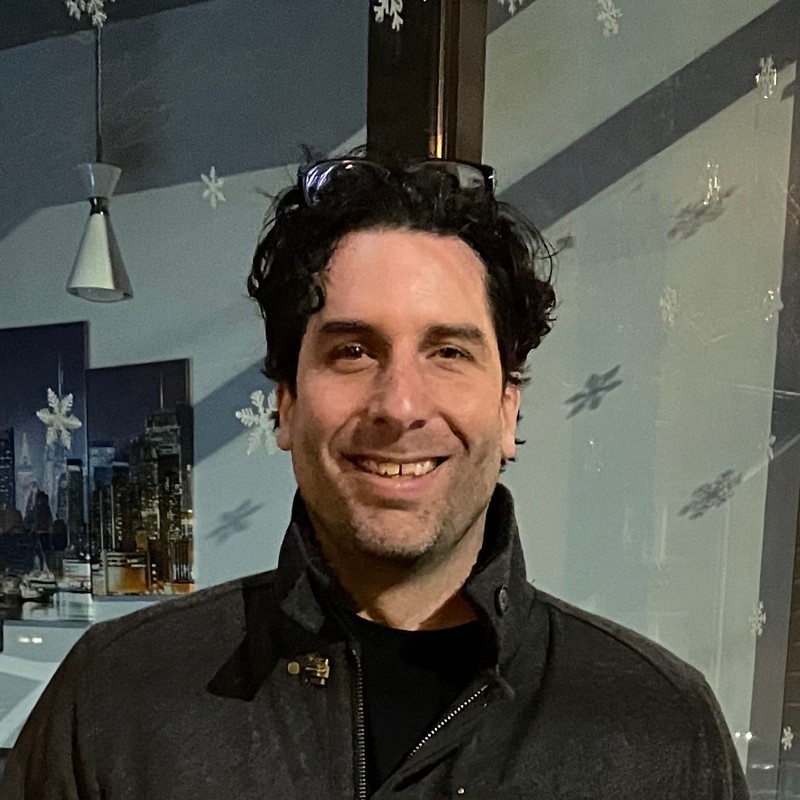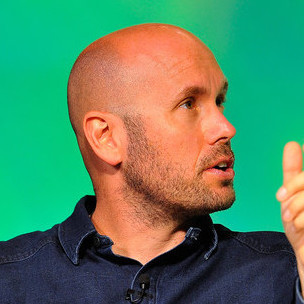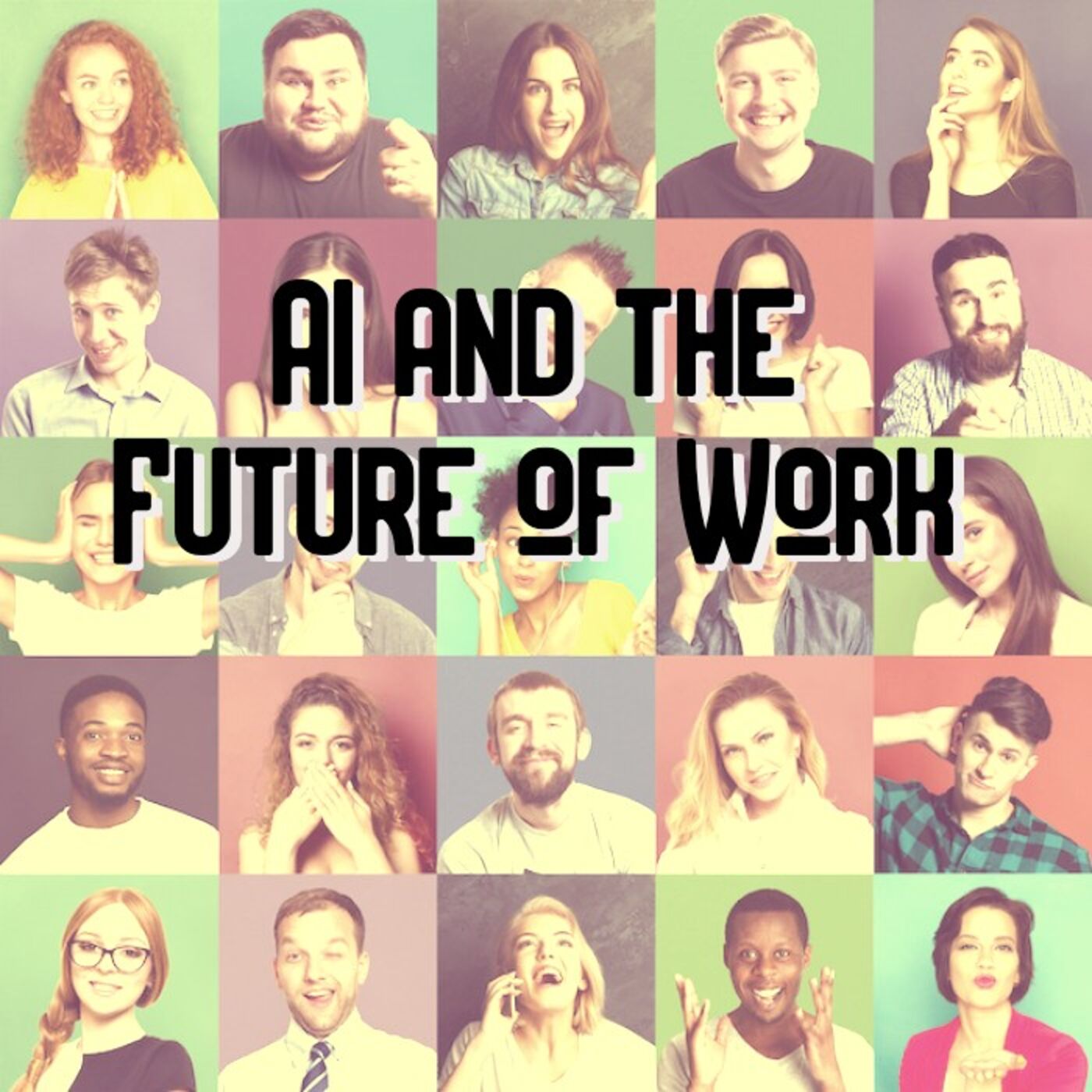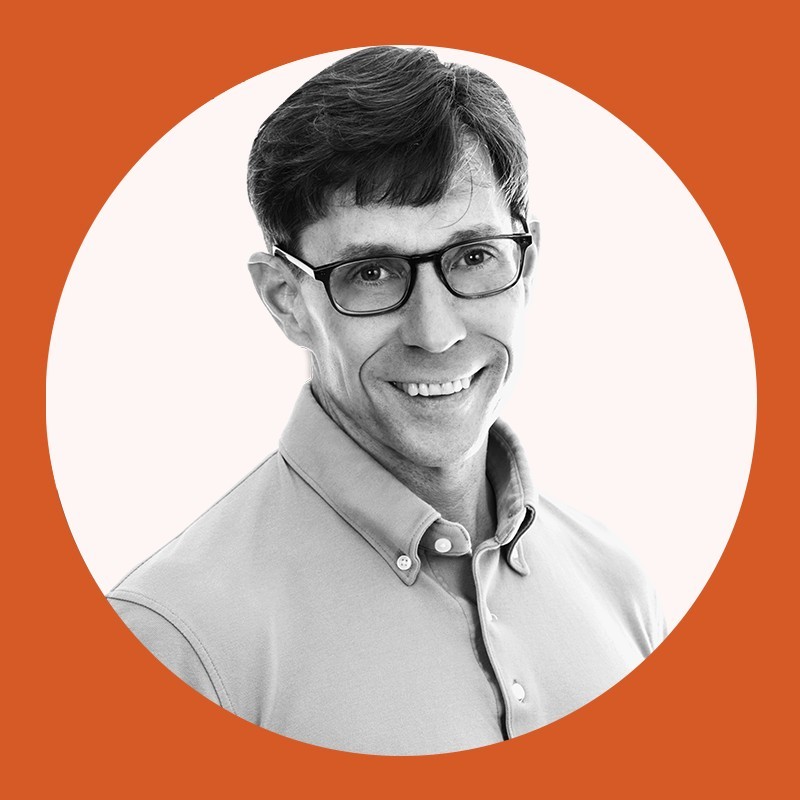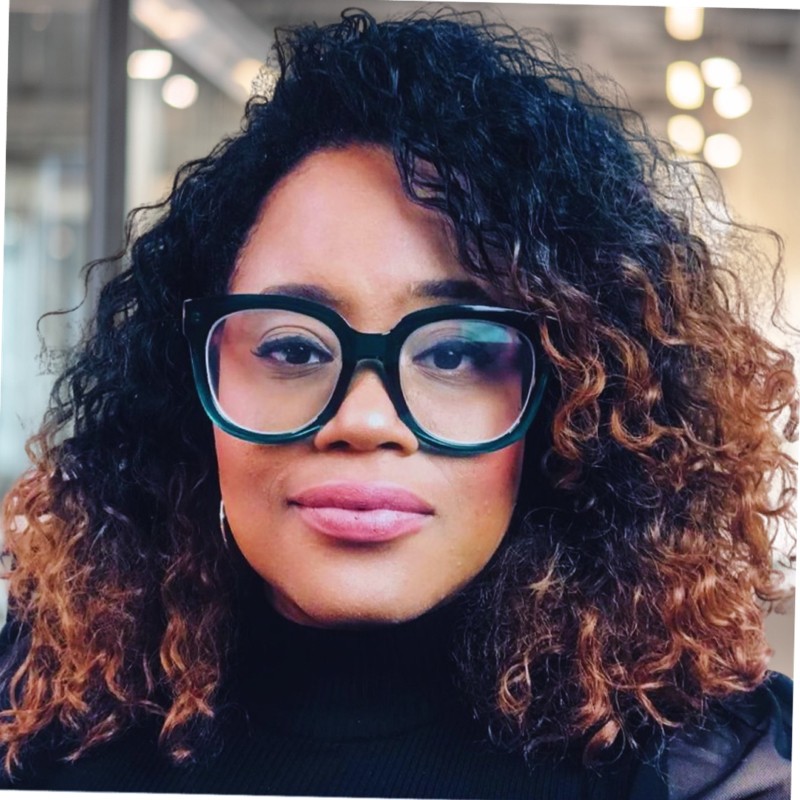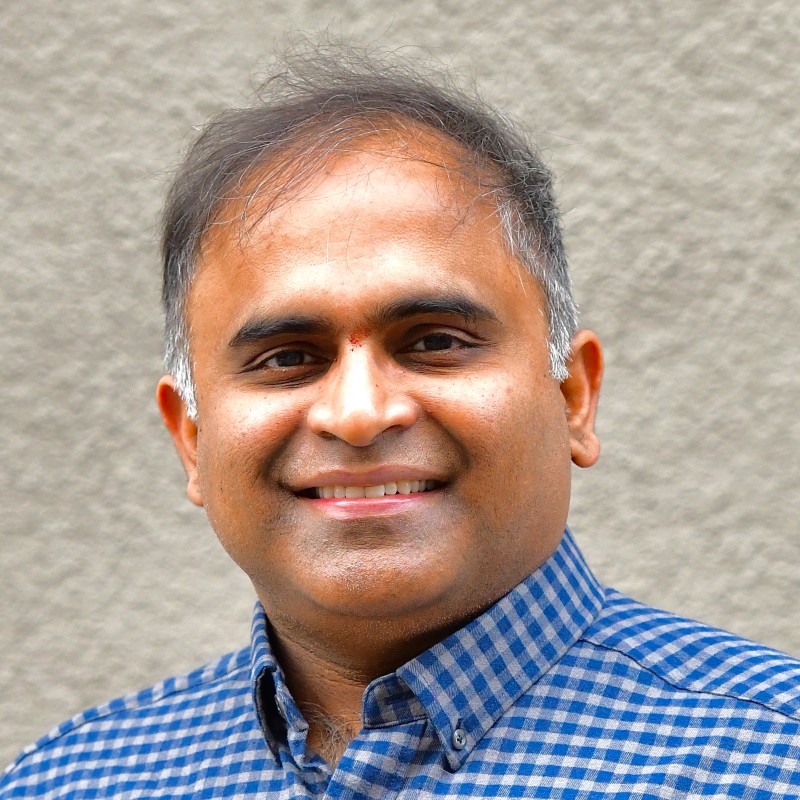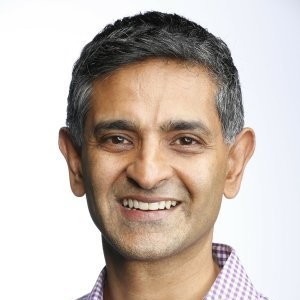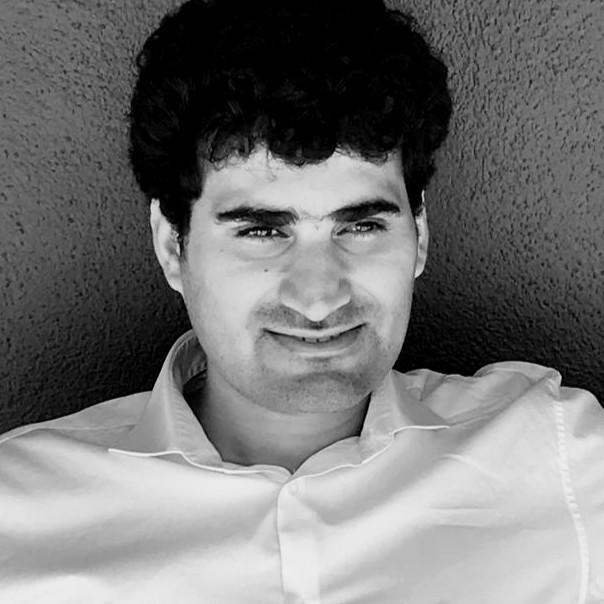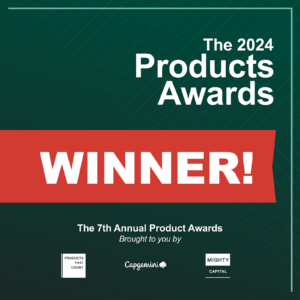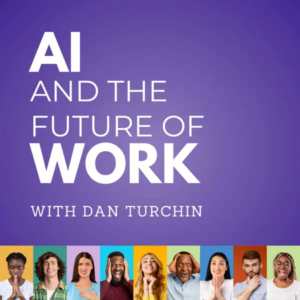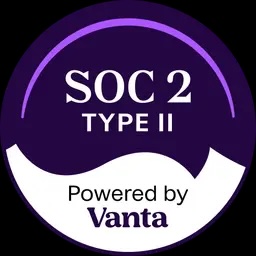AI and the Future of Work
-

Episode Number : 134
Peter Scott , author, TedX speaker, and futurist, worked at NASA’s JPL laboratory after receiving his Masters Degree in Computer Science from Cambridge. Raising kids made him realize the potential impact of AI to do both good and harm. He left NASA and switched careers to feel confident he was doing all he could to secure their future. He recently published Artificial Intelligence and You after publishing Crisis of Control five years back.
Show moreShow lessListen and learn:
- When will we achieve artificial general intelligence (AGI)… and is that the right goal for the AI community?
- Why we weight the potential of AI doing harm about five times as much as the potential for it doing good.
- What’s the biggest global problem AI might solve in the near term.
- How DeepMind’s AlphaFold protein folding technology could change humanity.
- What does it mean to be human in an era when machines can do more tasks historically reserved for humans?
- Why Peter blames Big Tech for “breaking” democracy.
- What Peter expects will be AI’s greatest achievement in the next decade.
- Why the evolution of a digital race hinges on global economic incentives.
References in this episode:
References in this episode:
-

Episode Number : 133
Kia Kokalitcheva, Axios tech reporter, is a Silicon Valley native who writes about tech news and culture. Among other things, she co-authors the popular Pro Rata newsletter (over 200k subscribers) with Dan Primack. Kia has covered many of the most iconic tech stories of the past decade as a writer at Fortune and VentureBeat prior to Axios which was just acquired by Cox Enterprises. Kia recently wrote about Adam Neumann’s new company, Flow. Hear Kia’s perspectives on how Flow could transform living like WeWork transformed working… and why she’s not scared that bots may take her job.
Show moreShow lessListen and learn…
- How Adam Neumann of WeWork fame raised $350M at a $1B valuation from A16Z for his new company Flow… before launching
- Kia’s proudest moment as a journalist
- What the acquisition of Axios by Cox Enterprises means for journalism
- How Flow may be more than the reincarnation of WeWork’s failed WeLive experiment
- As a culture, are we ready for communal living?
- What is the future of company perks… are the days of on-site dry cleaning numbered?
- How the generational shift is impacting cultural norms in the workplace
- What tasks bots will never do better than live journalists
References in this episode:
- How AI is transforming journalism according to The Knight Foundation
- Gary A. Bolles discusses the WorkNet on AI and the Future of Work
- Mark van Rijmenam, The Digital Speaker, on AI and the Future of Work
-

Episode Number : 132
Deon Nicholas , Forethought Co-Founder CEO, grew up in inner-city Toronto stocking shelves in a pharmacy before learning to code at an early age. He started Forethought in 2017 after learning the value of answering customer questions working for companies like Facebook and Pure Storage.
Show moreShow lessDeon has since raised $92M from an exceptional group of investors including funds like Steadfast Capital and NEA plus celebrities including Gwyneth Paltrow, Ashton Kutcher, and Robert Downey Jr. Deon won the TechCrunch Disrupt Battlefield startup competition in 2018 and is a member of the Forbes 30 under 30. He’s also a mentor and advisor to founders of color.
Listen and learn…
- How AI connects customers to the right agents then indicates the likelihood of a support interaction escalating
- How to use historical data to help live agents fix problems faster
- The evolution of chatbots from decision trees to AI
- How to combine generic language models with domain-specific data to increase the accuracy of NLP
- How to solve the problem of bias encoded in data
- How GANs, generative adversarial networks, work
- Why ML pipelines need to be monitored like web apps
References in this episode…
-

Episode Number : 131
Jim Lawton , VP and GM of Robotics Automation at Zebra Technologies, met the founder of Roomba, Rodney Brooks , at MIT nearly three decades ago. It inspired a lifetime passion for robots that help humans. Since then, he has influenced generations of robotic automation technology at companies from Rethink Robotics to Zebra Technologies. This is a fascinating discussion that will make you reconsider what robots can do and why humans shouldn’t feel threatened by them.
Show moreShow lessListen and learn…
- How Jim cultivated a passion for robots… and why that makes him “the cool dad”
- How innovation in robotic technology is helping AMRs, autonomous mobile robots, perform more human-like tasks with less training
- Which “dirty, dull, dangerous” tasks are the best candidates for robotic automation
- How new training techniques are reducing the time required to train a robot from 300 hours to a fraction of that which “democratizes automation”
- What’s required to keep humans safe from robots
- How supplementing humans with robots for a task like picking items from warehouse shelves using machine vision saves 12-15 miles of walking per day while increasing accuracy
- How techniques like SLAM and machine learning are making it easier to program robots to do more complex tasks more accurately with zero or minimal coding
- Which new careers will be created by industrial robots… and which will be eliminated
- Two quick ways to know if a factory using robots and humans is safe
- Why Jim’s passion is using robots to help people be their best selves
References in this episode:
-

Episode Number : 130
Kamal Ahluwalia and the Eightfold team set out to find the right career for everyone in the world. Six years later after having raised more than $200M from a legendary group of investors and built a talented 600-person team, they’re well on their way. Kamal joined Eightfold as President in 2018 from a successful tech career at companies like Model N and Selectica. Hear Kamal share his vision for how to use data and AI to help employees upskill, reskill, and ultimately find careers they love.
Show moreShow lessListen and learn…
- How Eightfold operationalizes the bold vision to find “the right career for everyone in the world”
- What has helped Eightfold scale to support customers in 140 countries and 19 languages
- How an AI HR platform helps with upskilling for internal mobility but also with hiring and talent-skill matching
- Why legacy HR tech software failed by focusing on “compliance vs. employee needs”
- Why automation won’t eliminate jobs… but every job will change as a result of AI
- How understanding human potential starts with understanding data stored outside HCM in “systems of work” like CRM and ITSM
- How to mitigate the impact of biased data to use AI to achieve inclusion and diversity goals
- How AI can identify roles where employees are likely to succeed… even when they have no experience performing skills they require
- What are the ethical implications of using AI to hire and promote employees
References in this episode:
- OneTen.org and the role of Eightfold in its formation
- Renee Steenvorden from Randstad on AI and the Future of Work
- Giselle Mota from ADP on AI and the Future of Work
- Ashu Garg from Foundation Capital on AI and the Future of Work
- The BigScience BLOOM LLM
-

Episode Number : 129
Ben Brennan , former guest, accomplished author, and QSTAC CEO, guest hosts today’s “turn the tables” episode… and interviews Dan Turchin, PeopleReign CEO. Learn about Dan’s vision for augmenting human intelligence with machine intelligence and how AI will be used to give the next billion employees back an hour a day.
Show moreShow lessListen and learn…
- The origin story behind this podcast
- What’s required to use AI to improve employee experiences
- How many new jobs will be created by AI in the next five years according to The World Economic Forum
- The right way for investors to identify talent and catalyze innovation
- How Ben learned the value of human-centric AI from his days at Yahoo, Box, and Twitter
References in this episode:
- Mark Settle, serial CIO, on AI and the Future of Work
- Mark van Rijmenam, The Digital Speaker, on AI and the Future of Work
- Rory O’Driscoll from Scale Ventures Partners on AI and the Future of Work
- Ashu Garg from Foundation Capital on AI and the Future of Work
- Glenn Solomon from GGV on AI and the Future of Work
- The great Katie Stanton, PeopleReign investor from Moxxie Ventures
-

Episode Number : 128
Listen and learn: Why we hate calling customer support… and how AI is making the experience better Why
Show moreShow lessListen and learn:
- Why we hate calling customer support… and how AI is making the experience better
- Why automation beyond IVR is saving contact centers
- What happens when AI makes bad decisions
- When it’s ok to “nudge” users to work with the bot… even when they ask for a human
- The ethical implicatio ns of bots pretending to be human
- What new careers will be created when call center agents are replaced by bots
References in this episode:
-

Episode Number : 127
Krish Ramineni , Fireflies CEO and Microsoft alum, learned the value of NLP working with Skype and Office as a Product Manager. He set out to solve a problem he had: note-taking in meetings and following up afterward. Fireflies has been used by more than 60,000 organizations to make meetings more efficient. Krish has raised nearly $20M from an A-list group of investors including Canaan Partners and Khosla Ventures.
Show moreShow lessListen and learn…
- The evolution of speech recognition technology in the enterprise
- How Krish and the team build an AI voice assistant that joins meetings in 100 countries every day
- How to start with 85% ASR (automated speech recognition) accuracy and make it better using AI
- How to mitigate the impact of biased training data where foreign accents and uncommon speech patterns are underrepresented
- Who owns voice transcripts used to train AI models
- How being recorded changes participant behavior in meetings
- The future of “voice-first” computing
References in this episode:
- Krishna Gade from Fiddler discusses AI explainability
- Fireflies on Twitter
- A whole breast, AI-based ultrasound system was cleared by the FDA to improve mammogram accuracy
- Krish Ramineni, Fireflies CEO and Microsoft alum, learned the value of NLP working with Skype and Office as a Product Manager. He set out to solve a problem he had: note-taking in meetings and following up afterward. Fireflies has been used by more than 60,000 organizations to make meetings more efficient. Krish has raised nearly $20M from an A-list group of investors including Canaan Partners and Khosla Ventures.
-

Episode Number : 126
Joel Eagle , McDonald’s Senior Director of Technology and Architecture, started his career in healthcare and logistics before being promoted to technology leadership roles at one of the world’s most iconic companies. Joel and his team manage the cloud infrastructure that powers 40,000 restaurants for two million employees… and helps serve happiness in 120 global markets to the equivalent of the world’s population every 100 days. The technology that makes McDonald’s work is phenomenally complex. Joel makes it sound simple. Hear from the expert. Oh, and stick around to the end for McDonald’s fun facts!
Show moreShow lessListen and learn…
- How Joel channels Ray Kroc’s vision when architecting systems: “restaurants should run themselves… it should be as simple as a shoebox with money going in and going out.”
- Why Joel says “if it’s easier for the crew it’s better for the consumer.”
- How AI, wearables, IoT, and AR are all parts of the McDonald’s technology vision.
- Why the shift supervisor at a McDonald’s restaurant has one of the hardest jobs in the world.
- The anatomy of a McDonald’s restaurant: “…they’re mini factories run by a server.”
- How AI is improving the drive-thru experience and personalizing the dining experience.
- What’s required to support the McDonald’s app which generates 16% of the company’s revenue and is the world’s most downloaded food ordering app.
References in this episode…
- McDonald’s by the numbers
- Meta Research is improving NLP accuracy with less training data by using our understanding of how humans learn languages
- Giselle Mota, TEDx speaker and top 100 “Future of Work” thought leader, on AI and the Future of Work
-

Episode Number : 125
Ben Brennan , QSTAC CEO, author, and former IT exec at Yahoo and Verizon Media, is a world traveler, a musician, and a trained psychologist with passions for philosophy and psychotherapy. Not exactly the traditional background for an IT leader. Early roles at Pivotal Labs and Jawbone taught Ben that bringing humanity to technology is the future of work. He since published Badass IT Support and started QSTAC to measure the employee experience.
Show moreShow lessListen and learn…
- What Ben learned managing 100 people and supporting 15,000 employees at Yahoo
- How the culture at Pivotal Labs inspired Ben’s philosophy on quantifying the employee experience
- How Ben convinced a former Apple leader why QSTAC is better than NPS
- Why CSAT scores don’t actually correlate with how satisfied employees are at work
- How the principles of Design Thinking can be used to run IT
- What IT must do to avoid being “Uber-ed” like the taxi industry
References in this episode…
- Dion Hinchcliffe on AI and the Future of Work
- Tim Crawford on AI and the Future of Work
- Matt K. Parker on AI and the Future of Work
- O’Reilly’s 2021 AI adoption in the enterprise survey
- QSTAC
-

Episode Number : 124
Francois Candelon , Managing Director at the BCG Henderson Institute, has spent 30 years researching how companies adopt modern technology. His research spans business, technology, economics, and science. Francois is a popular speaker, author, and advisor who has been featured at events including Mobile World Congress, TED@BCG, Politico AI Summit, and Wuzhen Internet Conference. Francois is also a leader on BCG’s GAMMA AI@Scale team.
Show moreShow lessListen and learn…
- The one company Francois says best illustrates how AI can transform legacy industries
- Why “artificial intelligence” isn’t really “intelligent”
- What is an “AI strategy”… and what are the four questions to ask to define yours
- How a fintech company in the UK reduced costs to transfer money by 90% with AI
- What’s required to earn the public’s trust in AI
- Why every company should be required to have a “social license” to use AI
References in this episode…
- Fortune article on human-machine collaboration by Francois
- Francois’ “BCG Expert” profile
- Eric Daimler, Obama’s AI authority, on AI and the Future of Work
- The McKinsey “AI in 2020 Survey”
-

Episode Number : 123
Stephen Messer , founder of Collective[i], was an attorney and teacher before discovering his passion for entrepreneurship. He started LinkShare (acquired by Rakuten in 2005) which made it possible to pay for clicks on the web. He changed how the web works and now he’s using AI to change the world of B2B sales. The world needs more visionaries like Stephen. Hear what fuels him and learn about his process for disrupting legacy industries.
Show moreShow lessListen and learn…
- The four words that define what all the best entrepreneurs do better than everyone else
- Why sales is the only job function where “30% productivity is the norm”
- What’s required to use AI to help B2B sales people
- How to use RPA to automatically update CRM systems
- How Stephen’s winning against Salesforce, Microsoft, and HubSpot
- What to look for in a mentor
References in this episode…
-

Episode Number : 122
In this special episode, we unpack the controversy surrounding the sentient chatbot that “worries about its future”. Google engineer Blake Lemoine published a transcript of a conversation with the chatbot LaMDA that generated strong reactions from technologists and AI ethicists. It conjured images from science fiction movies that always capture the public imagination.
Show moreShow lessTiernan Ray, ZDNet writer, accomplished tech journalist, and good friend of the podcast, joined host Dan Turchin to reflect on the story based on his analysis of the 5,000-word LaMDA transcript.
Listen and learn…
- What will it be like to co-habit a world with thinking machines?
- What does it mean for an AI to be sentient? Why should we care?
- Should AI be protected under the 13th amendment?
- How do we know LaMDA’s not sentient from the transcript?
- What are the ethical implications of developing sentient bots?
- Did Google act responsibly in developing a bot that is sentient-like?
References in this episode…
- Tiernan’s analysis of the LaMDA transcript
- Melanie Mitchell on MSNBC
- Blake Lemoine’s interview with Steven Levy in Wire
- Alan Turing’s Imitation Game
-

Episode Number : 121
Kevin Dewalt , CEO of Prolego, built his first neural net at Stanford in 1995 after graduating from the U.S. Coast Guard Academy. He popularized the term “AI abundance” to describe the path of exponential technologies and how AI adoption is five years from becoming mainstream. He now applies 25 years of studying AI to help organizations embrace the future.
Show moreShow lessListen and learn…
- What every company needs to know to succeed with AI.
- How the most successful organizations approach AI investments.
- Why Kevin says: “…we haven’t had a single project where we’ve used AI to eliminate jobs.”
- What Kevin feels is the most disruptive field within AI research.
- Practical applications of NLP and large language models (LLMs)
- Kevin’s contrarian view on AI ethics
References in this episode:
- The world’s first AI comic book
- Kevin’s book: Become an AI Company in 90 days
- Kevin’s company: Prolego
- Snorkel to automate data labeling
- Andrew Yang on AI
- “D” Das, Founder and CEO of Sorcero, on AI and the Future of Work
-

Episode Number : 120
Giselle Mota , Future of Work principal at ADP, overcame dyslexia and discovered passions for math and AI. Her parents immigrated from the Dominican Republic and taught Giselle the power of perseverance. Now she speaks frequently to global audiences about the importance of using AI responsibly to hire and nurture talent.
Show moreShow lessListen and learn…
- How AI accelerates the process of learning new skills
- How to mitigate the impact of bias in automated decision-making
- The dangers of using facial recognition in recruiting and hiring processes
- How to design organizations that celebrate cognitive diversity
- How to optimize hiring processes to avoid confirmation bias
- How many jobs will be created by AI before 2025 according to the World Economic Forum
- Giselle’s coaching for females and under-represented minorities in STEM fields
References in this episode:
- Your $250 discount from Hello Landing using Giselle’s promo code: giselle_itg
- Bernard Marr, Futurist
- Joy Buolamwini, AI social justice advocate
- Bryan Talebi from Ahura AI on AI and the Future of Work
- Kai Nunez from Salesforce on AI and the Future of Work
-

Episode Number : 119
Harish Batlapenumarthy always believed culture is more important than anything else at work. He and the team at Emtropy Labs set out to identify how groups communicate in companies using machine learning. They ultimately landed on listening to customer feedback to automatically generate insights into customer experience metrics like churn risk.
Show moreShow lessListen and learn…
- A better way to identify customer sentiment using supervised machine learning
- What techniques are most effective for labeling training data
- Why traditional methods of measuring customer satisfaction are poor at understanding actual customer satisfaction
- How to mitigate the impact of bias in training data
- How Harish defines “responsible AI”
- Why there will always be a need for human customer success managers
References in this episode…
- Emtropy Labs
- Chandra Khatri from Got It AI on AI and the Future of Work
-

Episode Number : 118
Eric Daimler advised the Obama administration on how to have conversations about AI. His work led to the creation of the AI office within the Science Advisory Group of The White House which has now become a cabinet-level position reporting to The President. Eric’s a walking encyclopedia about AI policy and he shares all in this fascinating discussion about the future of technology, ethics, and society.
Show moreShow lessListen and learn…
- What it’s like to shift from academia to venture capital to entrepreneurship to public service
- How the growth of data sources as well as data creates an unimaginably large number of data relationships
- How Conexus applied categorical algebra to bring together 300k databases at Uber
- Why it’s data integration limitations that are constraining AI innovation more than compute, storage, or algorithms
- How category theory is required for smart contracts on blockchains and quantum computing
- How Eric thinks about when AI should make autonomous decisions vs. requiring human intervention
- The role of regulation in managing job elimination due to AI
- The ethical framework Eric proposes for evaluating what decisions AI can and should make
- The challenges of enforcing data policies like GDPR in the EU
- How Eric defines “responsible AI”
References in this episode…
- Eric’s company, Conexus
- The President’s Council of Advisors on Science and Technology
- Aftershock which includes a chapter by Eric
- Eric on Twitter
-

Episode Number : 117
Mahesh Ram , founder and CEO of Solvvy, set out to “give everyone back time”. His company was recently acquired by Zoom to improve customer experiences using conversational AI. Mahesh was inspired by his work using speech recognition to improve business English learning at Global English. Solvvy was founded in 2015 and has raised funding from an exceptional group of investors including previous “AI and the Future of Work” guest Rory O’Driscoll from Scale Venture Partners.
Show moreShow lessListen and learn…
- About the three waves of chatbot technology
- Why “more deflection” doesn’t need to translate into “lower satisfaction”
- How Calm uses Solvvy to deliver automated customer service
- Why AI based on semantic similarity is better than traditional scripted chatbots
- Why “putting the user first” and “not hiding the live agent” is essential for gaining consumer trust in chatbots
- How to address latent bias in data used to train AI models
- Why bots will never replace live agents
References in this episode…
- Rory O’Driscoll from Scale Venture Partners on AI and the Future of Work
- Solvvy acquired by Zoom
- Chandra Khatri from Got It AI on AI and the Future of Work
-

Episode Number : 116
Chandra Khatri , Chief Scientist and Head of AI at Got It AI, was a key team member in the early days of AI at eBay, Amazon, and Uber. He has been on the cutting edge of NLP research for more than a decade and now leads AI at Got It AI. Chandra and the team are making it easier for customers to have conversations with bots. He’s making innovative use of transformers and active learning to use “small data” to train sophisticated large language models to automatically answer customer questions in fields as diverse as healthcare, financial services, education, and defense.
Show moreShow lessListen and learn…
- What the AI culture is like at eBay, Amazon, and Uber
- About transformers, why they’re important, and how they’re improving NLP accuracy
- How we’ve moved AI from search ranking (recommender systems) to other use cases including operations and bots
- How the rise of open source and no-code tools is making “Google-like” AI maturity accessible to every company
- How startups with limited access to data can use transfer learning to improve AI accuracy
- What’s holding back broader adoption of AI in the enterprise
- How the rise of Technical Product Managers (TPMs) is bridging the gap between engineers and business analysts
- How to eliminate bias from training data
- How long before we’ll all have a personal JARVIS
References in this episode…
- Got It AI
- Chandra on LinkedIn
- Chandra Khatri, Chief Scientist and Head of AI at Got It AI, was a key team member in the early days of AI at eBay, Amazon, and Uber. He has been on the cutting edge of NLP research for more than a decade and now leads AI at Got It AI. Chandra and the team are making it easier for customers to have conversations with bots. He’s making innovative use of transformers and active learning to use “small data” to train sophisticated large language models to automatically answer customer questions in fields as diverse as healthcare, financial services, education, and defense.
- Christopher Nguyen on AI and the Future of Work
-

Episode Number : 115
Paul Lee , serial entrepreneur and co-founder of Synesis One, combined his love of games with a passion for NLP and AI. He realized language ontologies can be developed by players solving problems in games. They can be rewarded with NFTs backed by tokens on a blockchain. A brilliant idea… from a Renaissance man who is also a medical doctor and the founder of a care marketplace for veterinarians. This is a fascinating one!
Show moreShow lessListen and learn…
- The future of large language models (LLMs)
- How ontologies can be crowd-sourced using games with NFTs as rewards
- How Synesis One is gamifying data yield farming with tokens on a Solana blockchain
- About the first graphic novel that is also an NFT-based sci fi game
- Why Paul selected Solana instead of the more popular Ethereum blockchain
- How to mitigate bias from entering ontologies generated by gamers
References in this episode:
- Synesis One
- Mind AI
- Quantum Noesis
- Edmundo Gonzalez from Marpai Health on AI and the Future of Work
